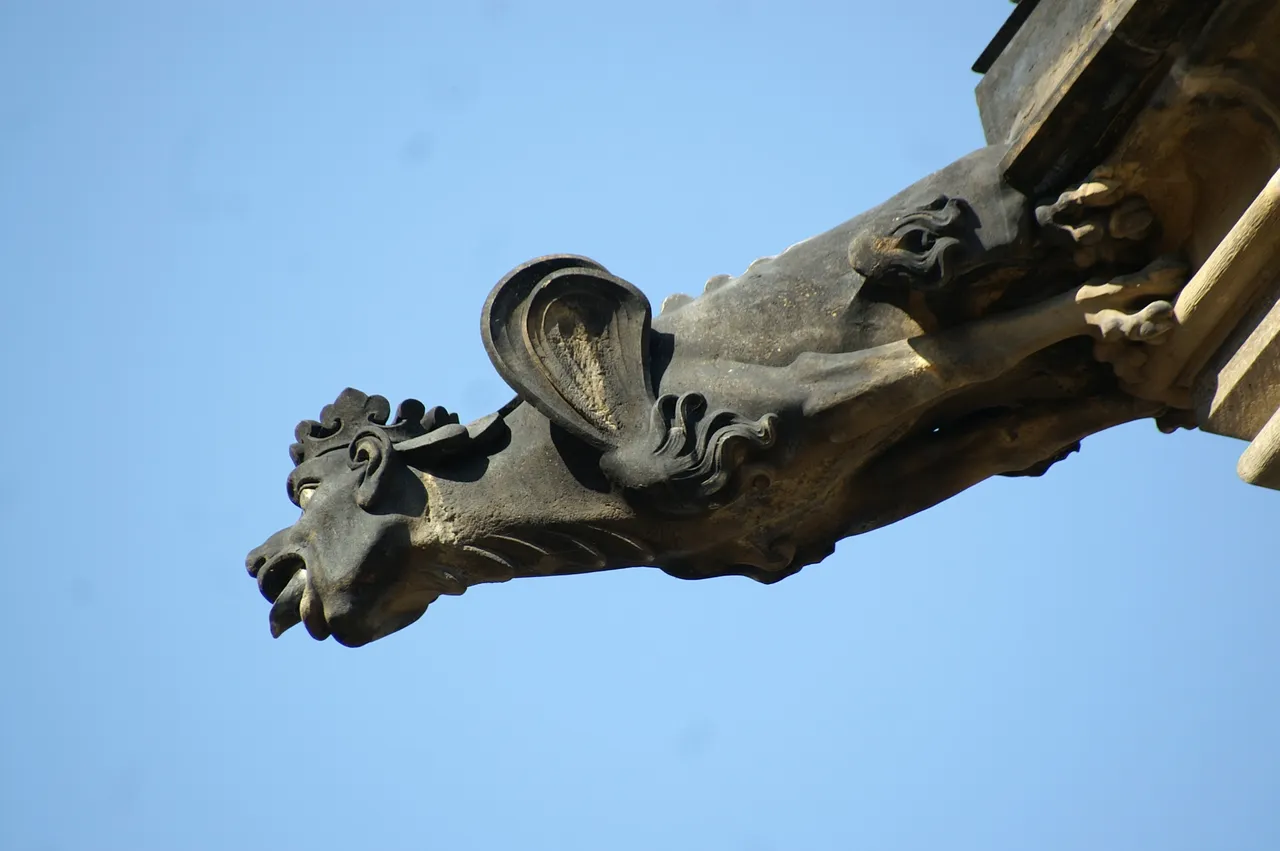
I love medieval, and especially Gothic architecture and I’m wondering how many fantastic details the ancient masters composed on the walls.
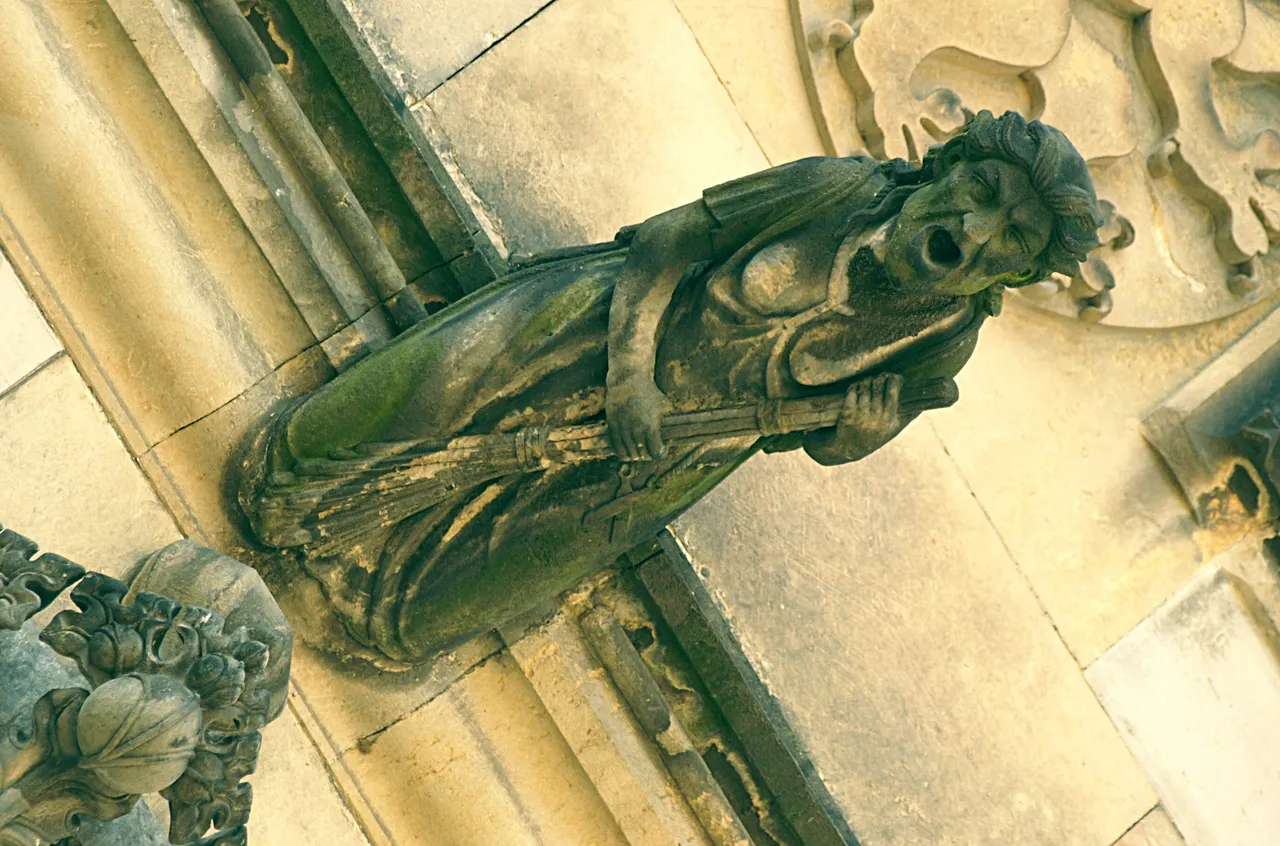
Tourists running from one place to other, or walking beery around, are missing many details. Today I’d like to show Prague – but not all the well-known views, only the gargoyles of the St. Vitus Cathedral in Prague.
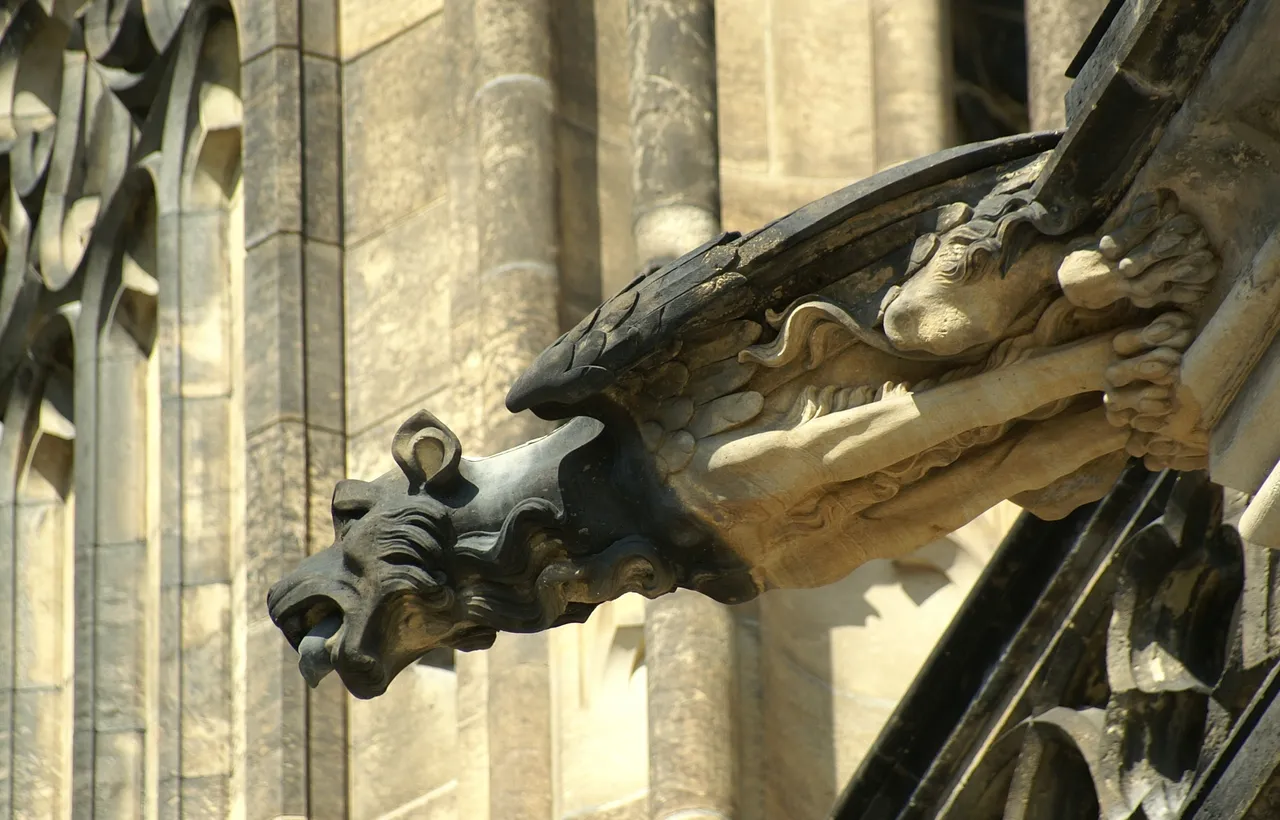
Gargoyles are mostly grotesque statues with water tubes (spouts), with the purpose of maintaining the water off the walls, away from the side of the building. The water is streaming mostly from their mouths.
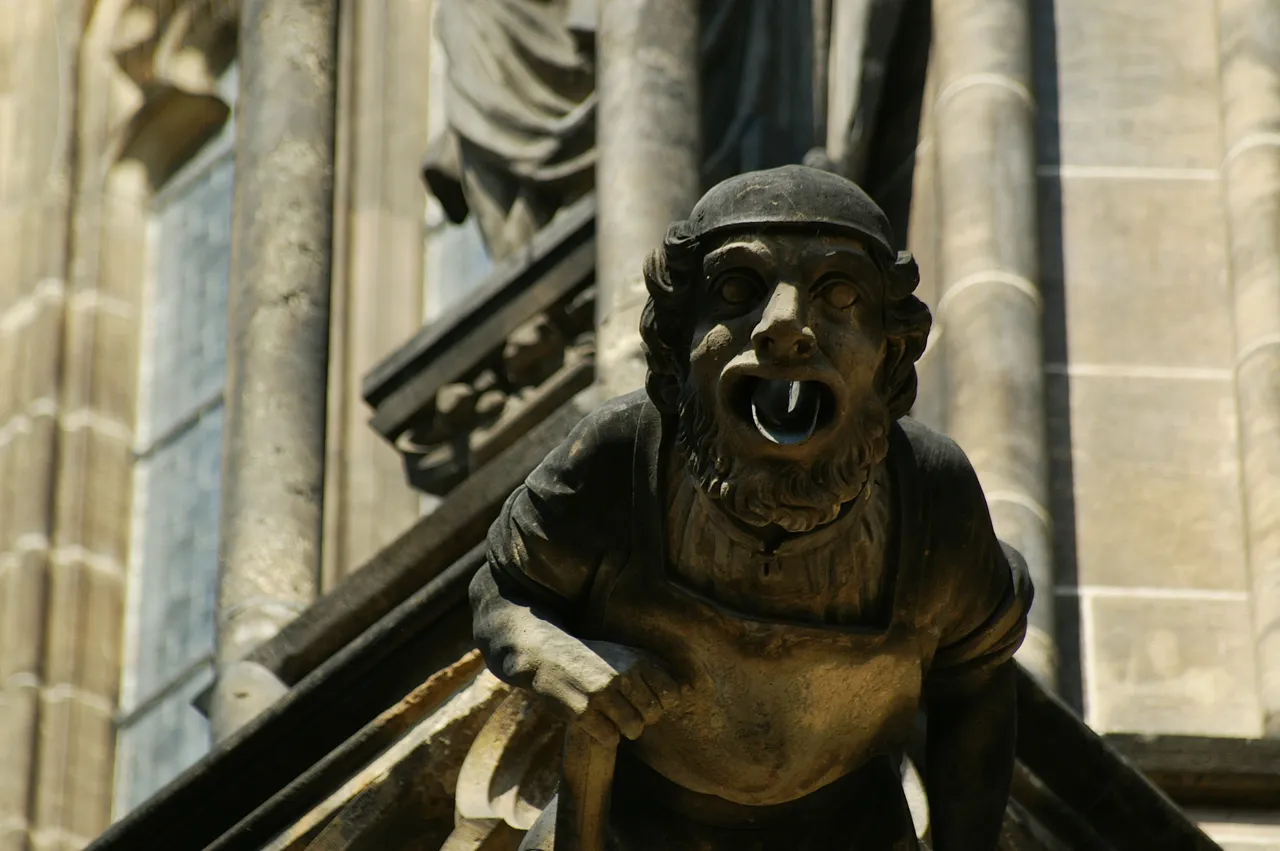
Originally a simple objective, but the medieval architects made a masterpiece of every one, giving them their own faces, characters, personality.
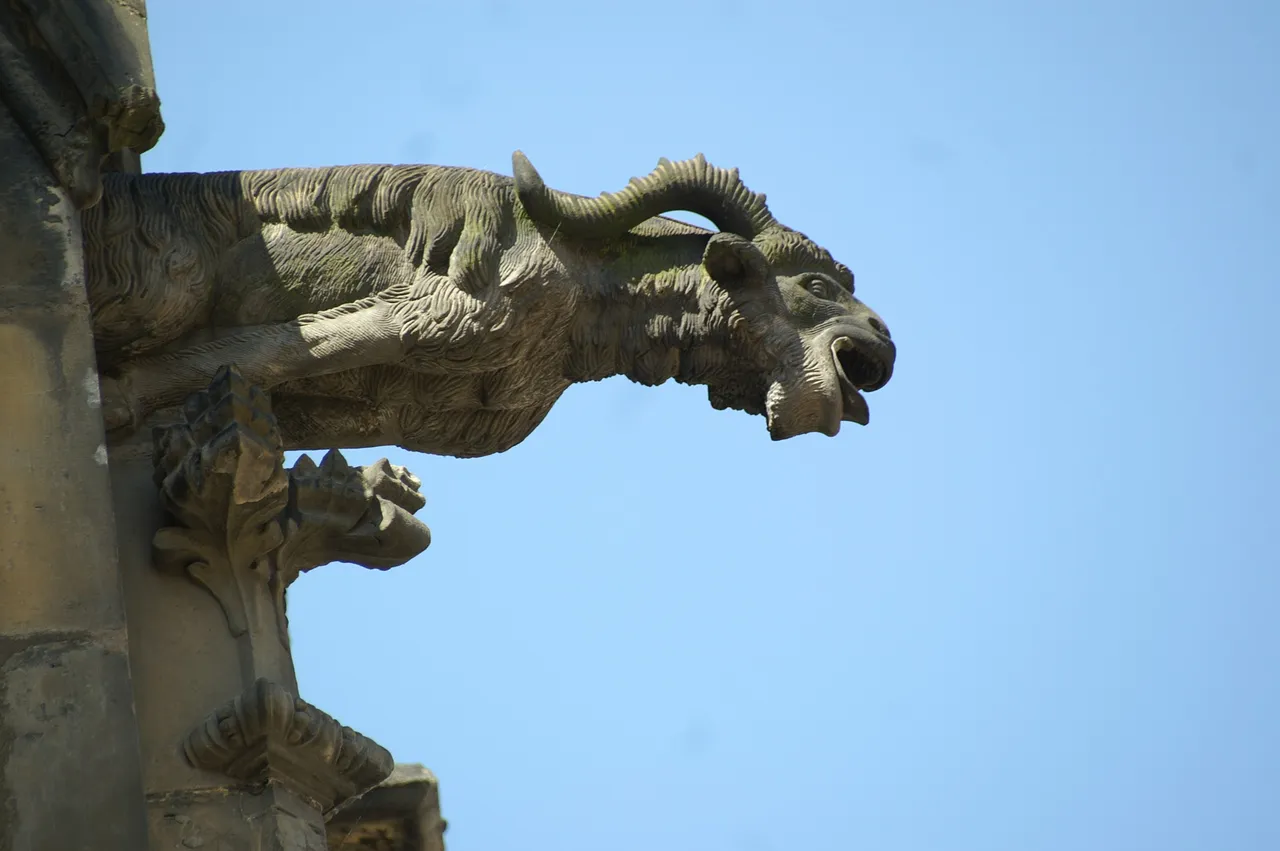
And not only that: they have own feelings, mostly bad ones. You can observe anger, pain, illnesses, suffering or fears on the faces.
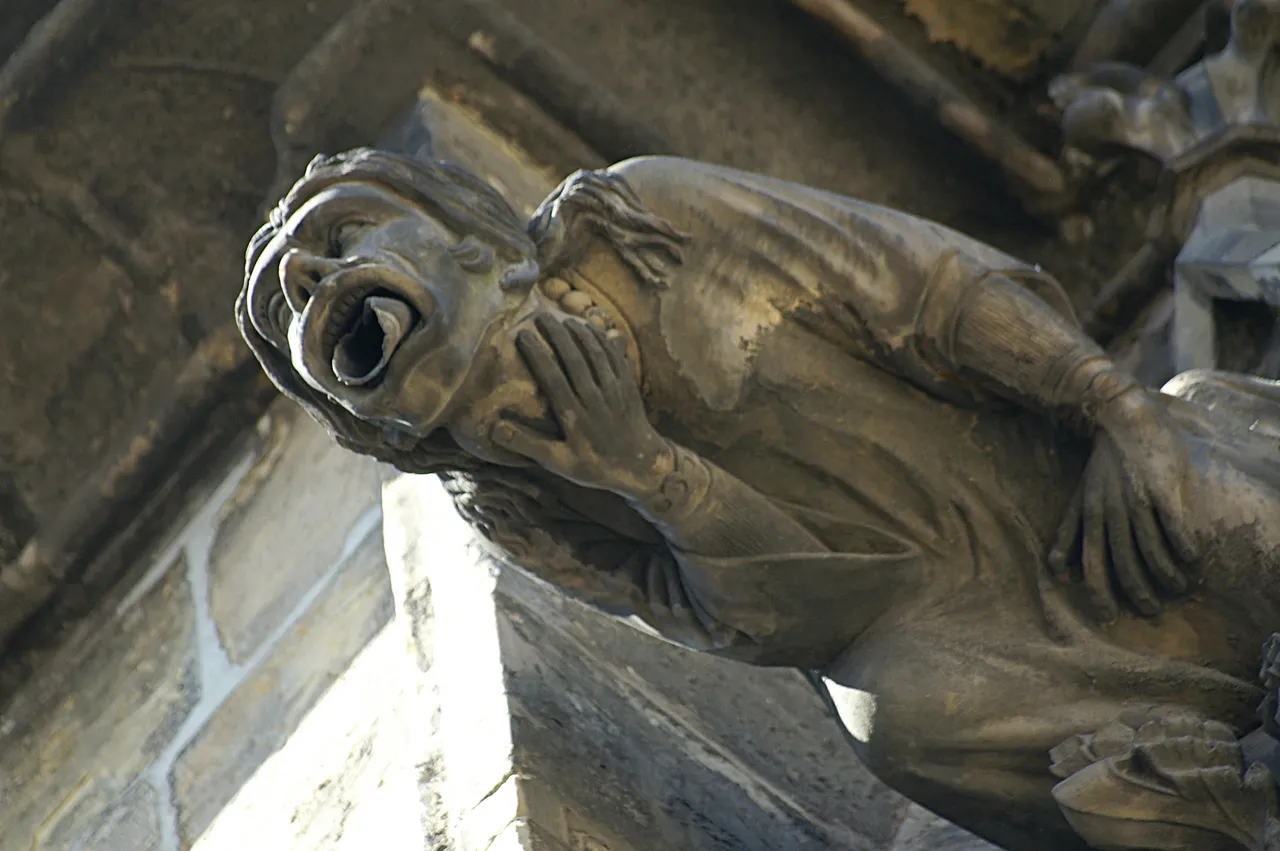
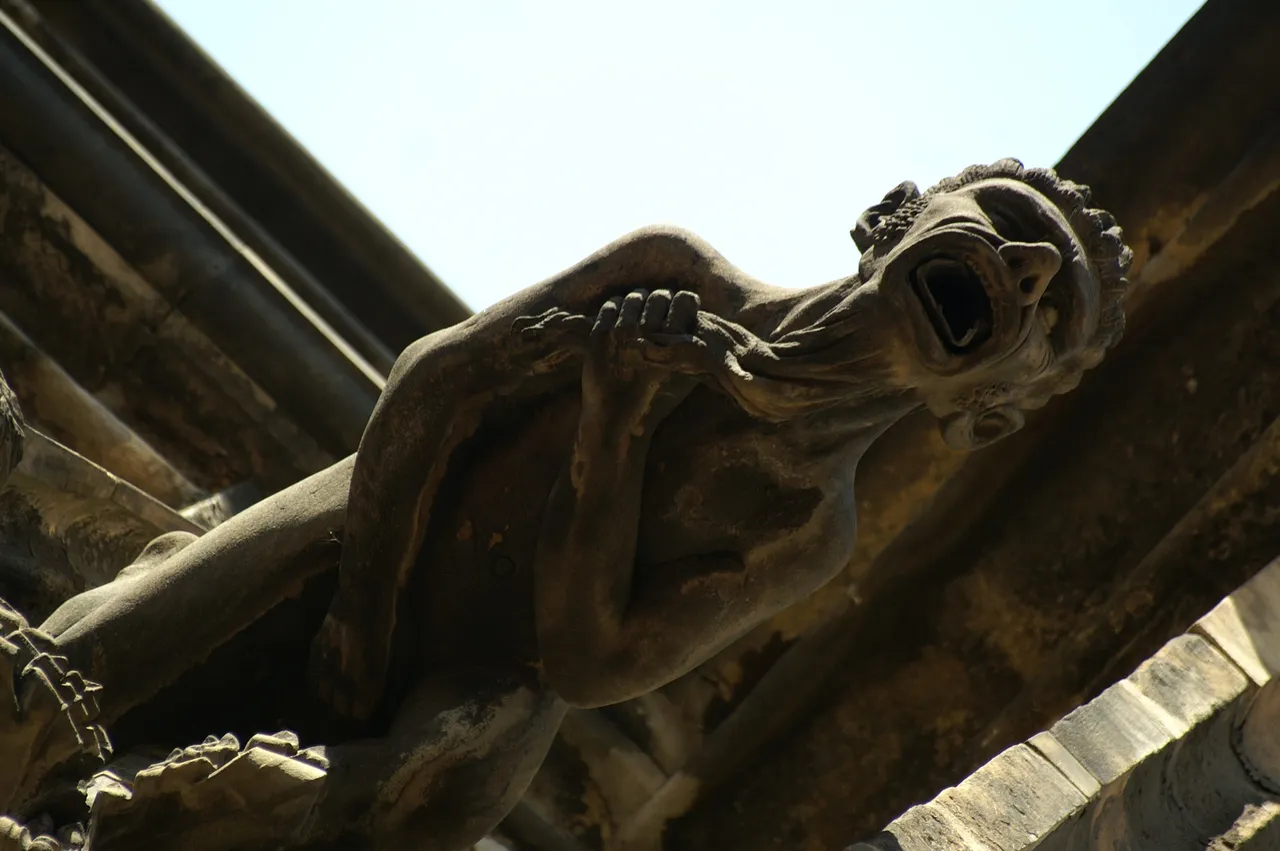
Some of the statues are animals, real or imaginary, some humans. And some of them half human, half beast.
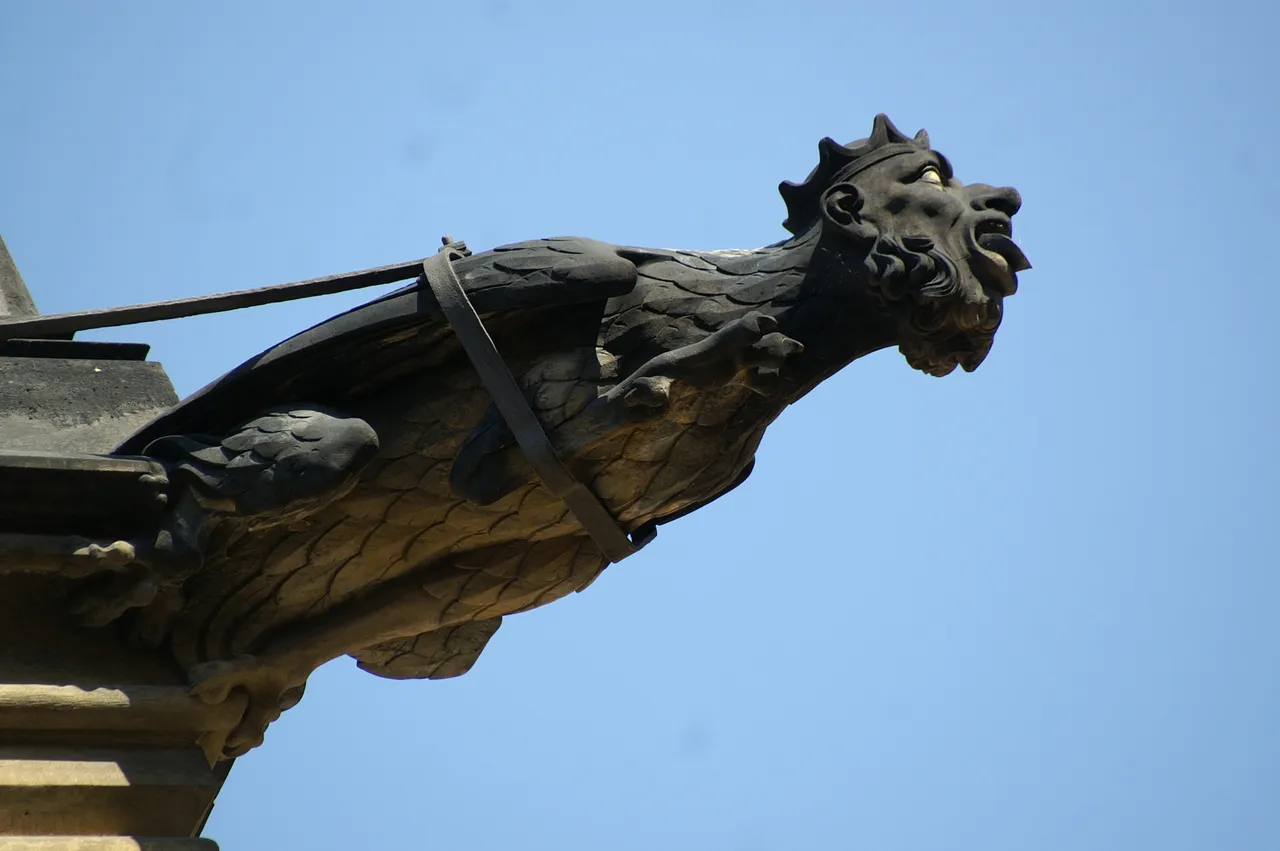
Like this half-king, half-bird creature above. A woman has a child in the hand, a beast, a fish.
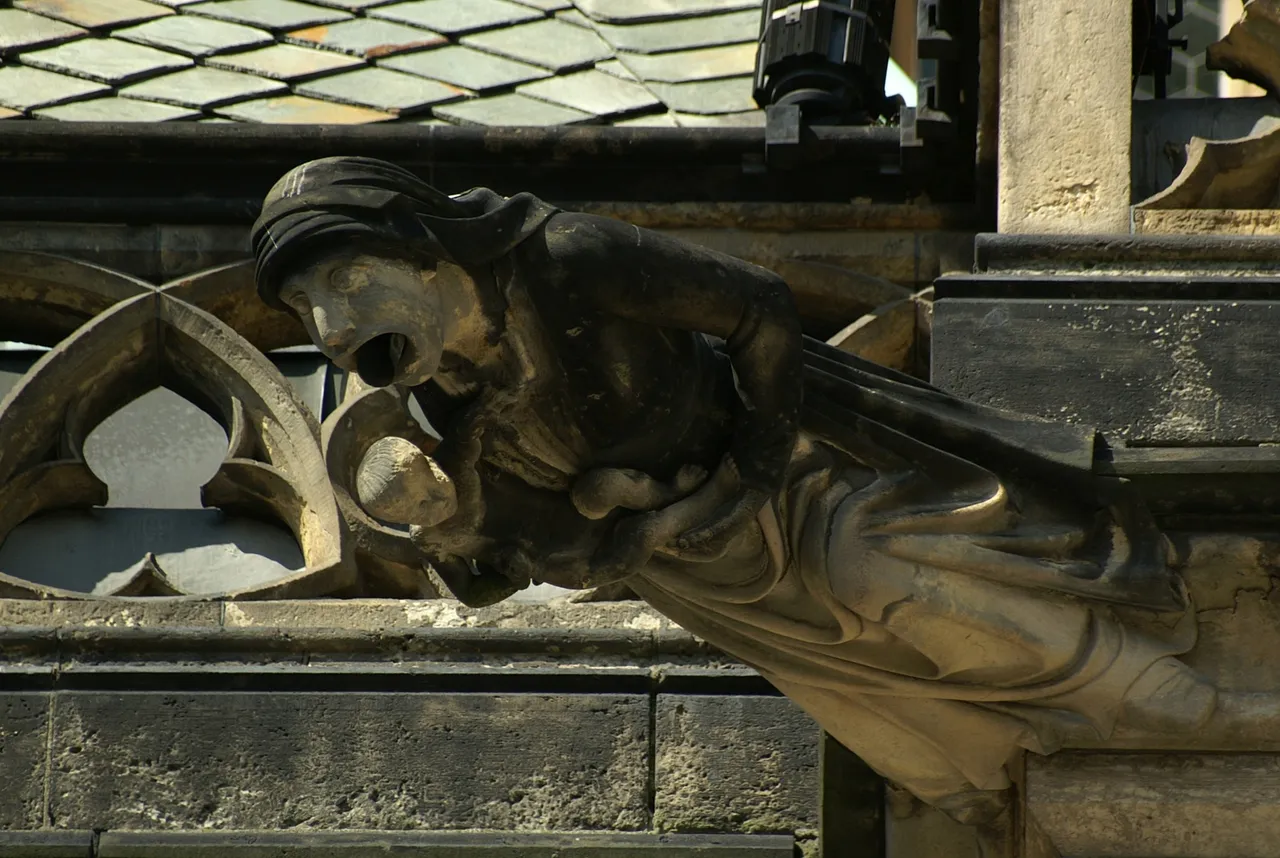
The gargoyles of the Notre Dame in Paris are especially famous. But not presented on this pictures.
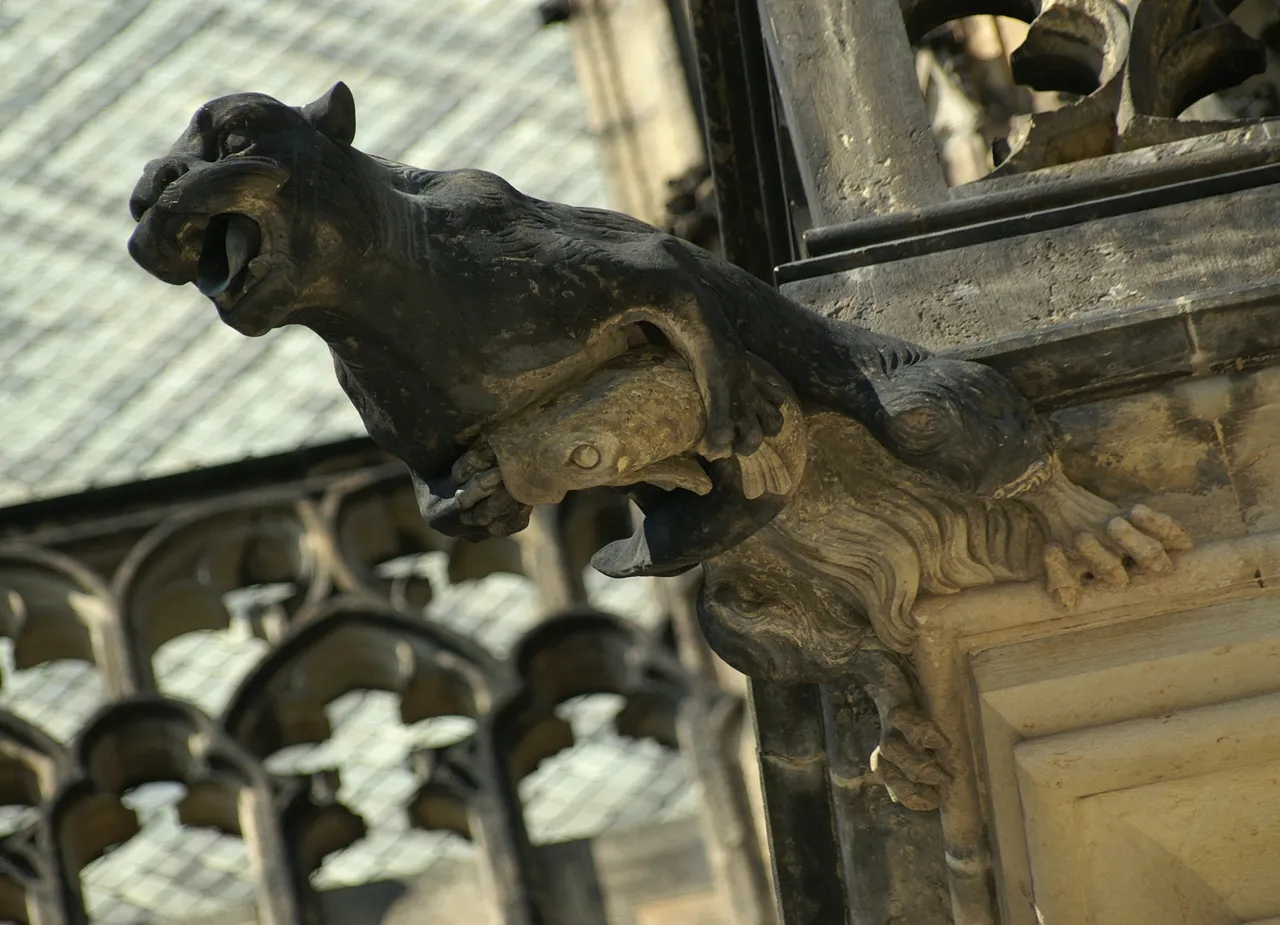
Legend of the Gargouille
La Gargouille is said to have been the typical dragon with bat-like wings, a long neck, and the ability to breathe fire from its mouth.
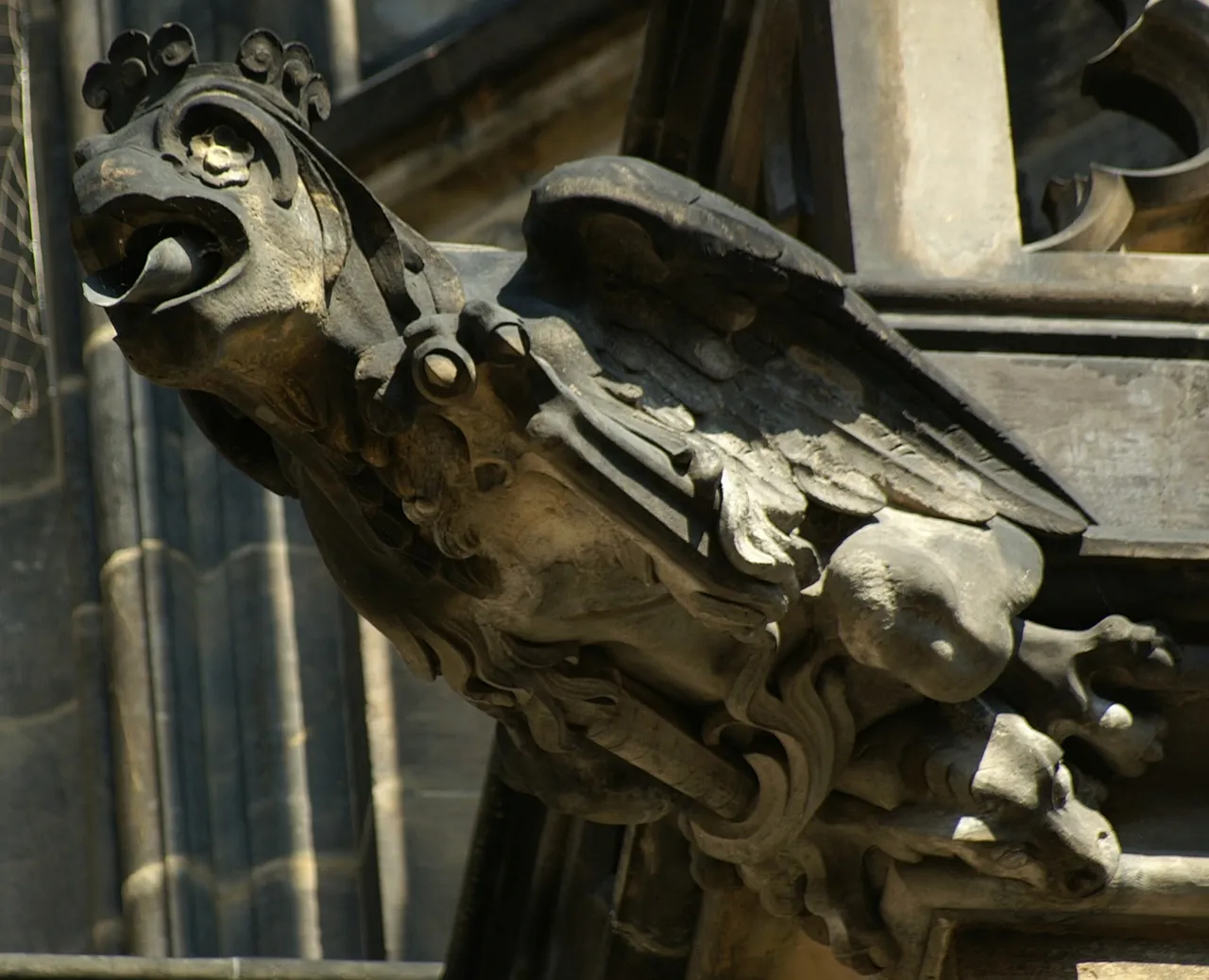
Multiple versions of the story are given, either that St. Romanus subdued the creature with a crucifix, or he captured the creature with the help of the only volunteer, a condemned man.
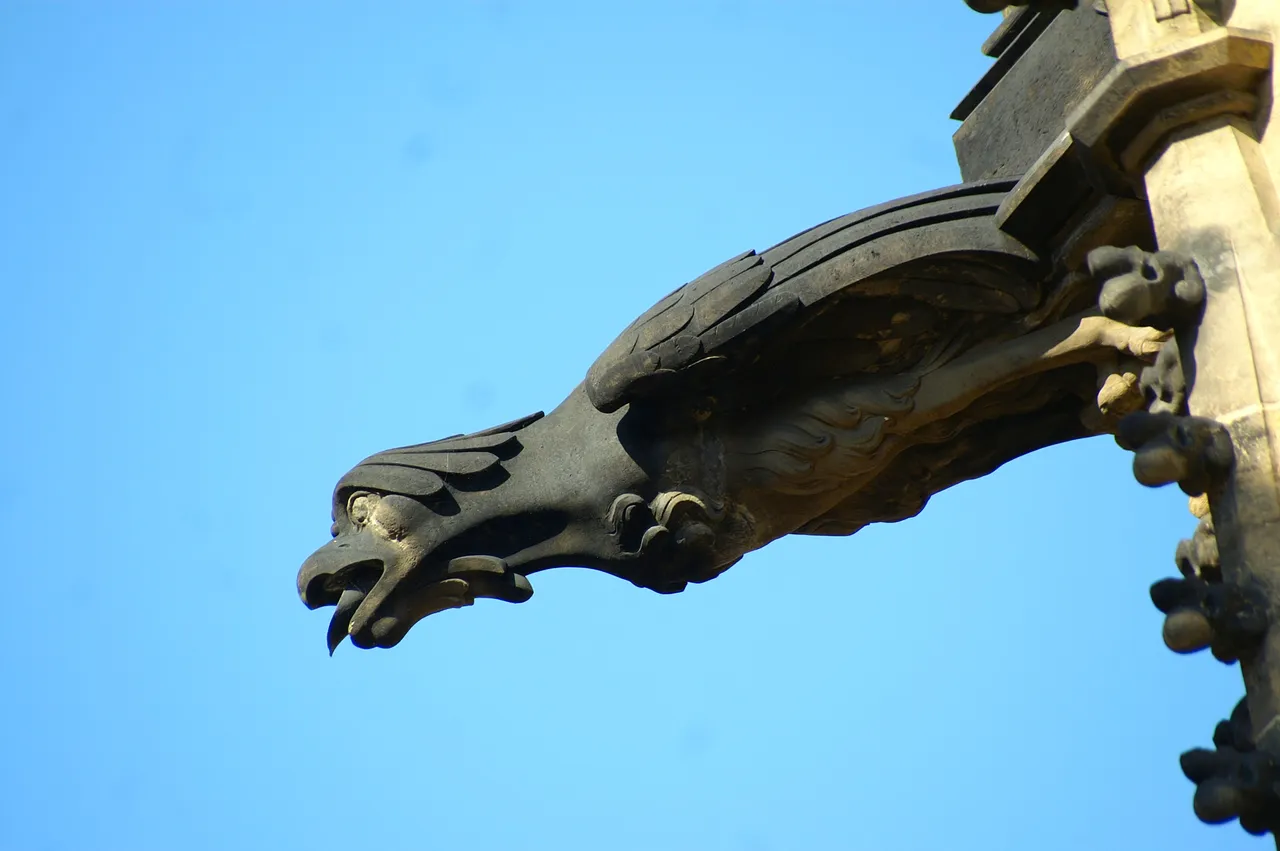
In each, the monster is led back to Rouen and burned, but its head and neck would not burn due to being tempered by its own fire breath.
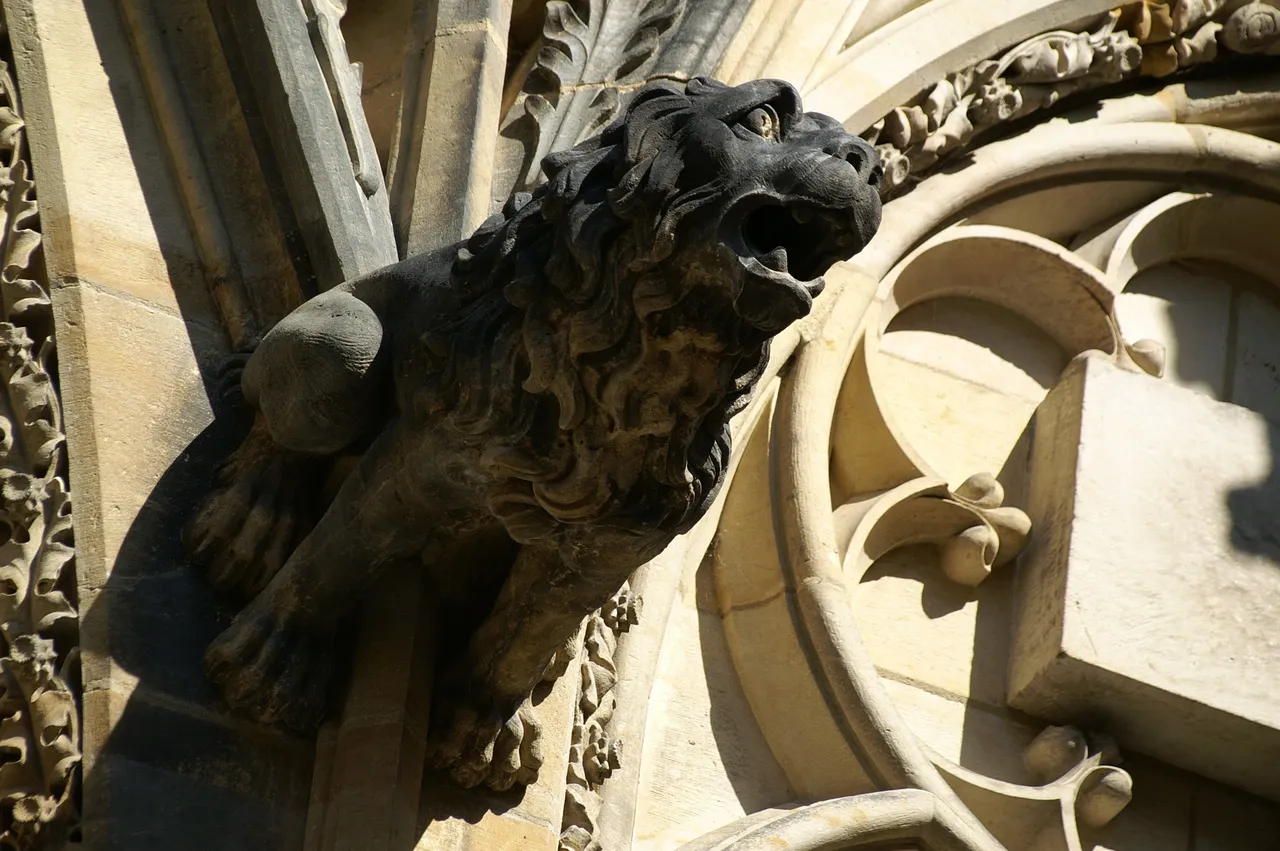
The head was then mounted on the walls of the newly built church to scare off evil spirits, and used for protection.
(Quotes in this post: Wikipedia)
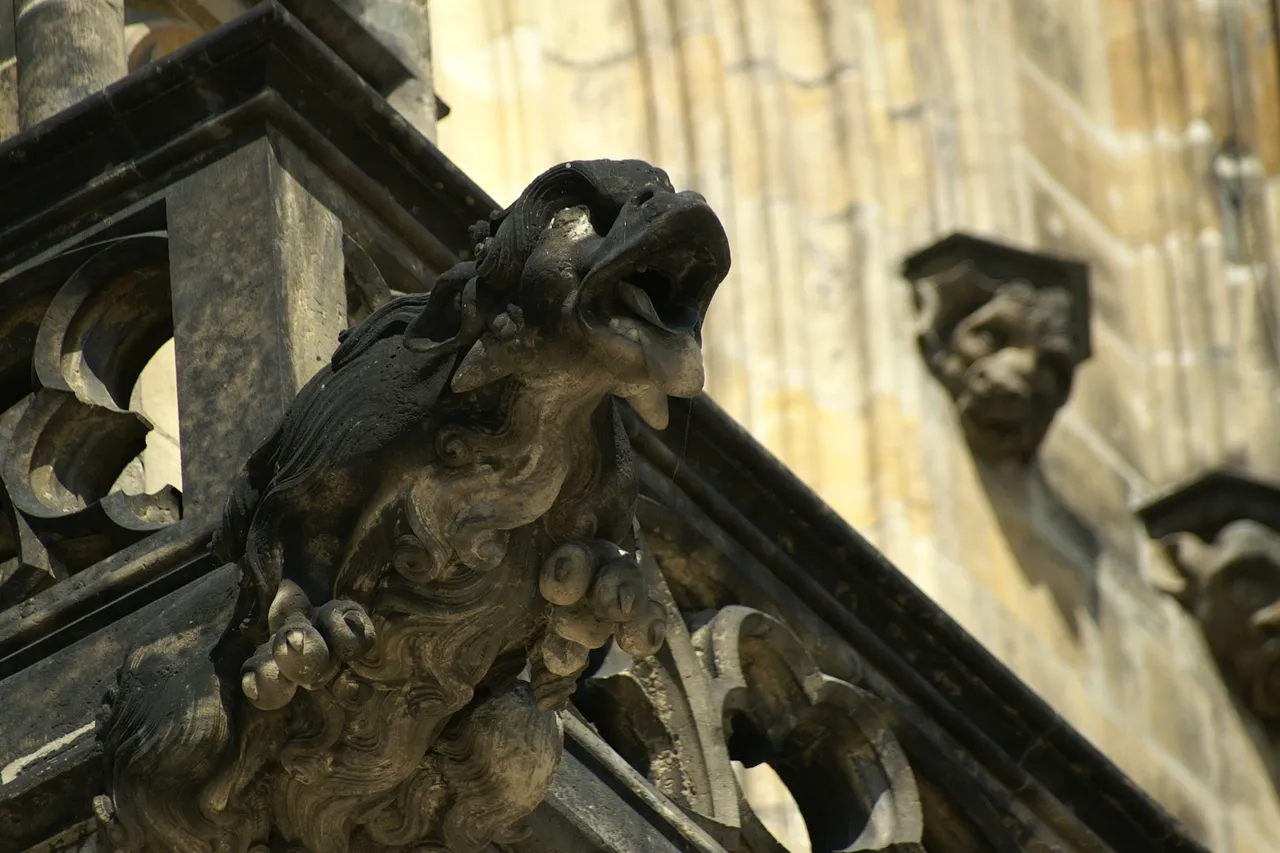
Gargoyles are said to frighten off and protect those that it guards, such as a church, from any evil or harmful spirits.
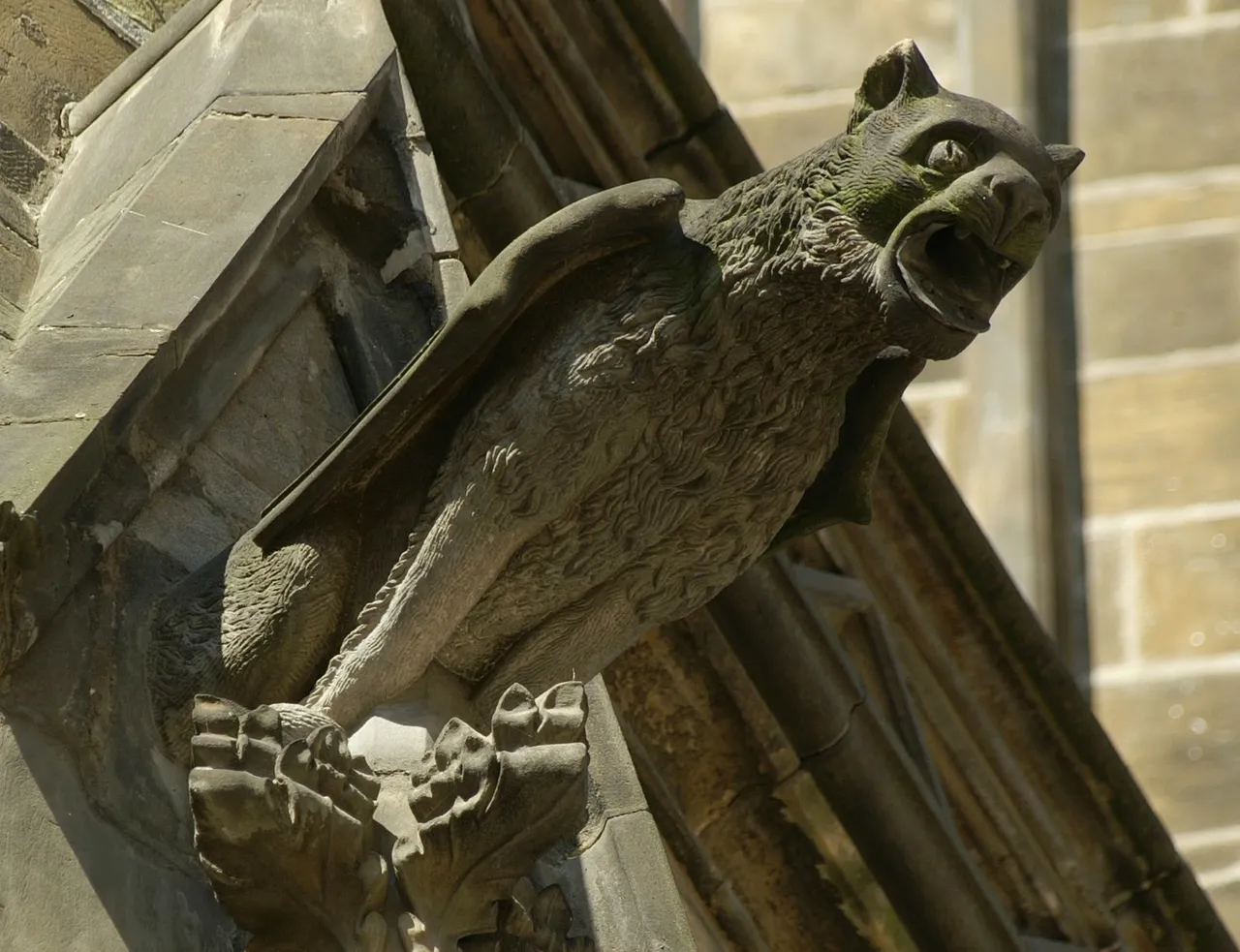
Catholic Church: The primary use of the gargoyle was to illustrate evil through the form of the gargoyle
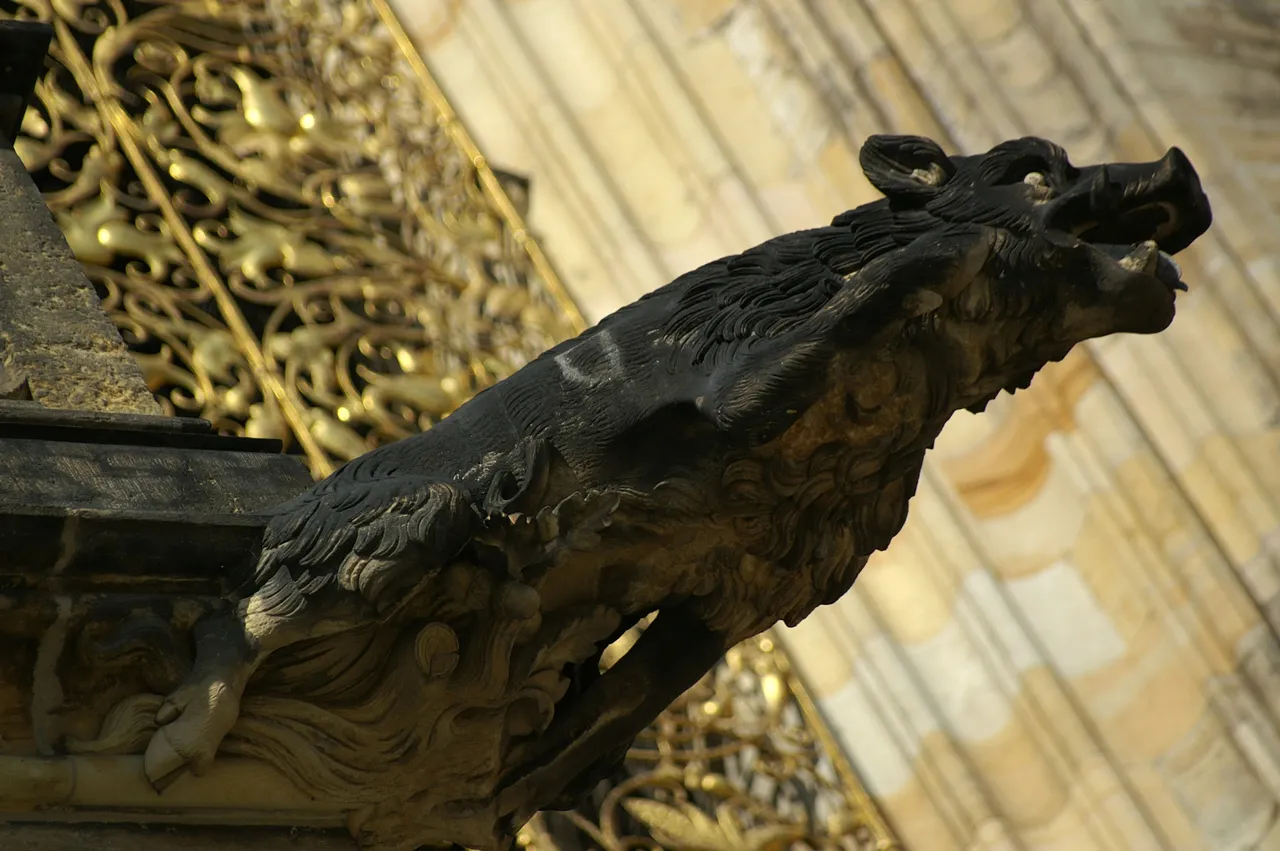
The ancient Egyptians, Greeks, Etruscans, and Romans all used animal-shaped waterspouts.
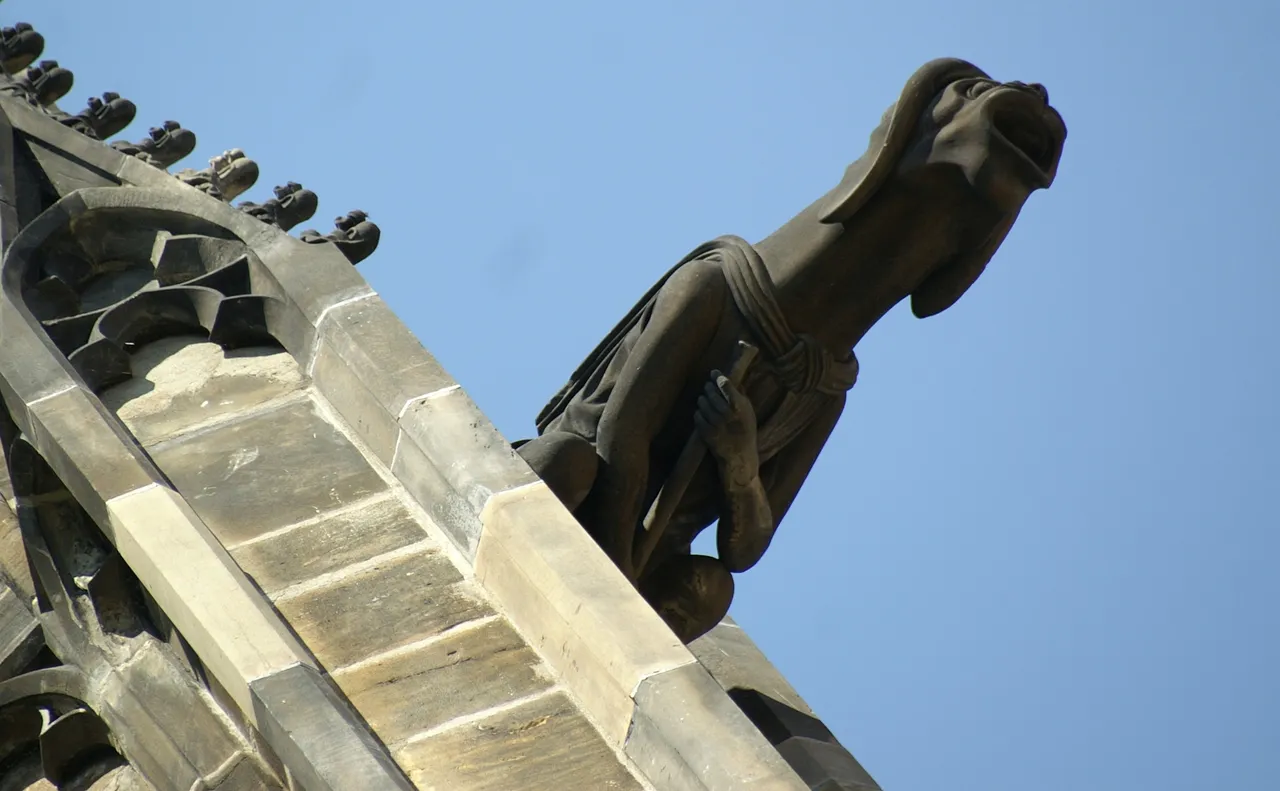
My “Slow down, tourist” project
Millions and millions of tourists are traveling to the most crowded destinations, like London, Paris, Amsterdam, Barcelona, Athene, Roma etc., but only hundreds or thousands to other historical places, beautiful medieval or classic destinations.
Many people are running from one famous monument to other, and from one bar to other, without paying attention to nice or important details. I’m a slow tourist, trying to know less known places, small towns or villages, sometimes everyday’s life of the people. I’m trying to share my experiences with you in this series.
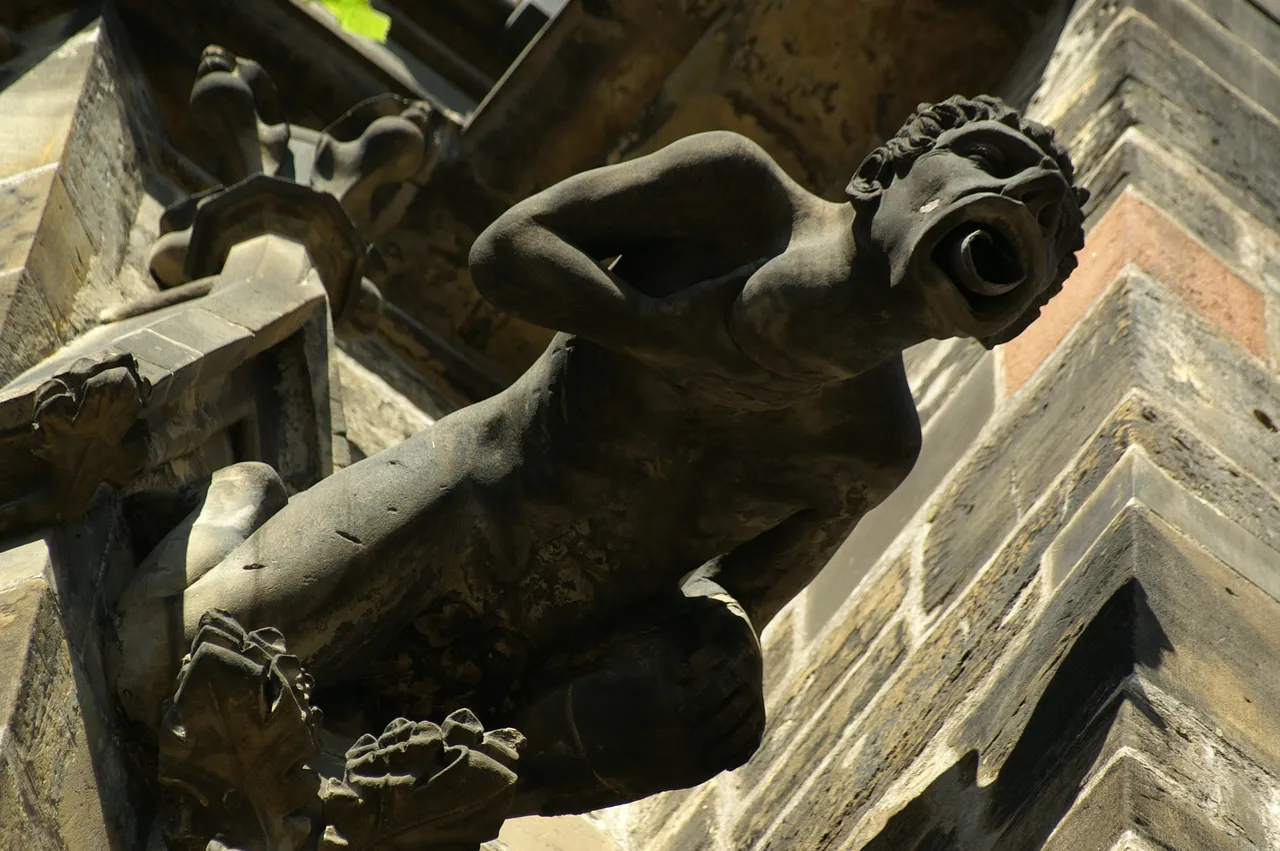
Other posts in my series “Slow down, tourist” you may want to read:
- Less Known Places In Prague
- Dark And Light Stories Of Nürnberg
- Autumn – means death?
- Homage To Catalonia
- Small, Medieval And Beautiful
- Mysterious Town In The Hills
You can message me on Discord.
(Camera and objectives used to take photos in this post: Konica-Minolta D7D, Sigma 28-300.)